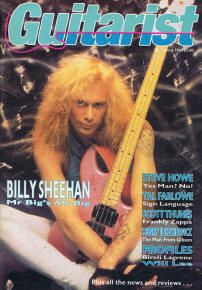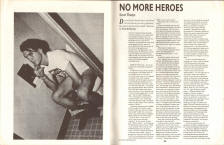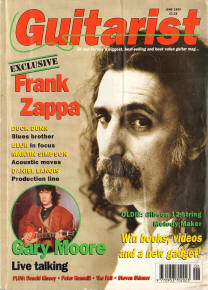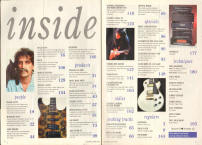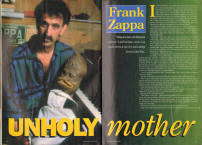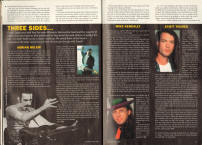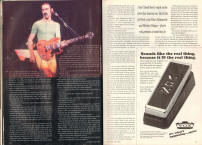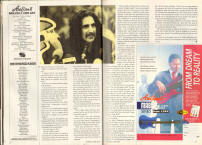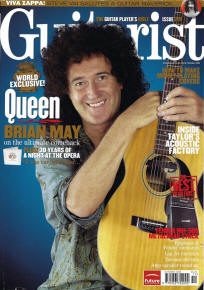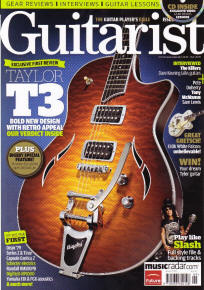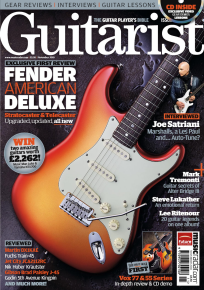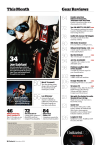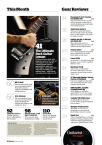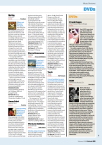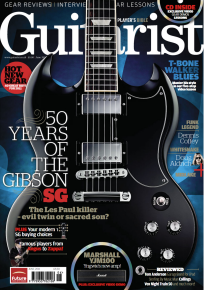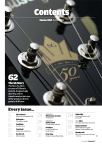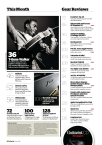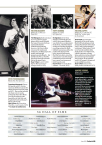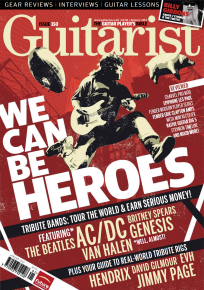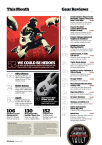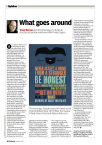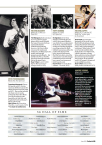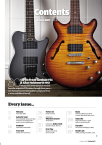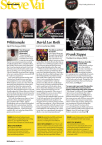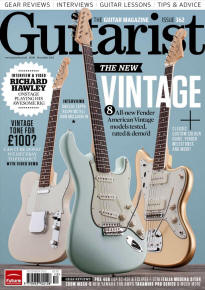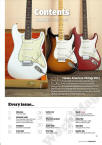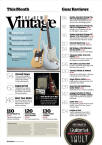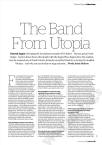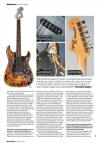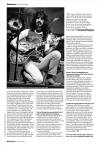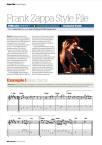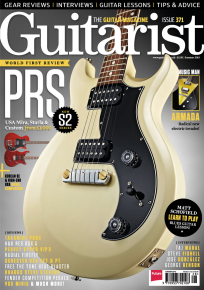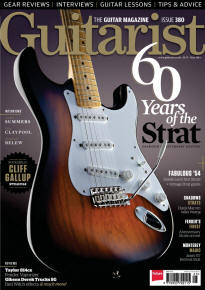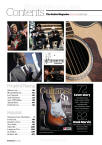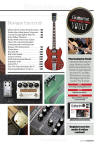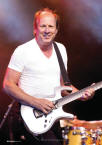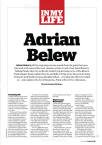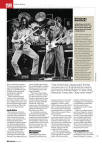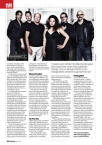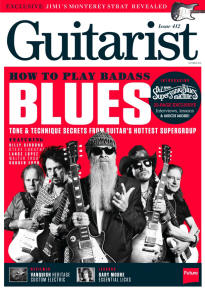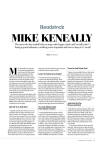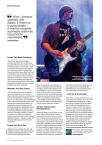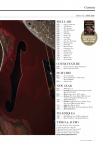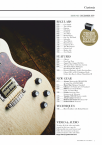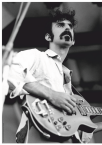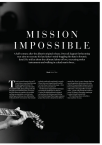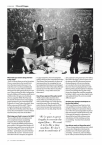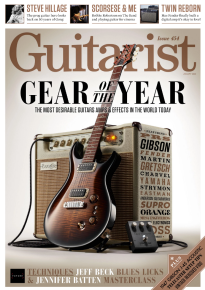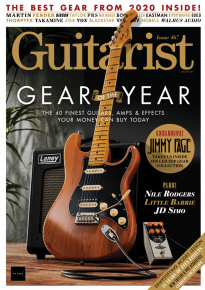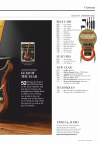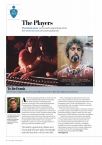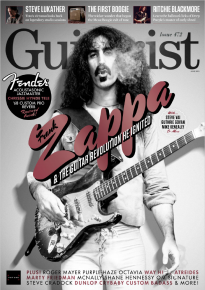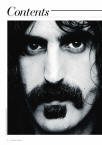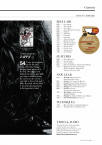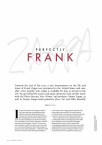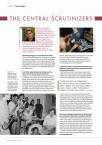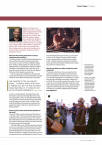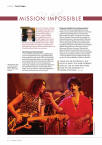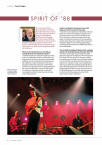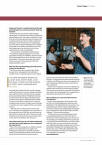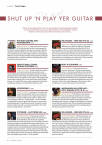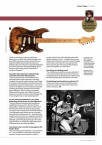Guitarist
Currently published by Future plc with other guitar magazines like Guitar Player, Guitar Techniques, Guitar World, Total Guitar, Australian Guitar and Bass Player.
SCOTT THUNES, BASS PLAYER with Frank Zappa, owes a great deal to studying the classics. but in so doing has dismissed the majority and has broken down much of the prejudice. Perhaps Bartok would hold some appeal if you put bass and drums behind the first movement of his fourth string quartet and discovered it was high power rock. Perhaps opera would make you smile if you thought of it as the first pop video format. On the other hand you might disagree with the idea that the invention of the phonograph destroyed music.
MORE OF THAT later... First of all, though, how did Scott get the gig with Frank? (read more)
This article was reprinted in Society Pages #1, April 1990, from where following page scans are taken.
Source: Society Pages #1
1993 June
Vol. 9 No. 12
(1)
Unholy mother
Interview by David Mead, pp 18-20, 22-27
(2) Three sides ...
Adrian Belew, Mike Keneally, Scott Thunes interviews by David
Mead, pp 22-23
(1) How would you sum up your guitar style on the early Mothers recordings?
"It was okay, but back then the guitar wasn't a featured instrument in the way it was on the later albums. As far as a precedent goes... I don't think there was anything you could compare it to; it was the only was I knew how to do it. There was no reason to do it another way, and anyway, everybody else was doing it the other way!"
The rock guitar influences that are the most common are the '60s icons, players like Clapton and Hendrix...
"Yes, but when we did 'Freak Out!' and 'Absolutely Free', there wasn't any Hendrix. We met Hendrix in the summer of '67; he sat in with us at the Garrick Theatre, so we'd already made those albums before I even knew that he existed. Actually, I think my playing is probably more derived from the folk music records that I heard; middle eastern music, Indian music, stuff like that. For years I had something called 'Music On The Desert Road', which was an album with all kinds of different ethnic music from the Middle East. I used to listen to that all the time – I liked that kind of melodic feel. I listened to Indian music, Ravi Shankar and so forth, before we did the 'Freak Out!' album. The idea of creating melody from scratch based on an ostinato or single chord that doesn't change – that was the world that I felt most comfortable with. If you listen to Indian classical music, it's not just pentatonic. Some of the ragas that they use are very chromatic, all sustained over a root and a fifth that doesn't change, and by using these chromatic scales they can imply all these other kinds of harmonies. The chords don't change; it's just the listener's aspect that gets to change, based on how the melody notes are driven against the ground bass." (read more)
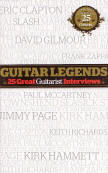 To
mark the 25th birthday of Guitarist magazine (launched
in June 1984) Guitar Legends –
a compendium of 25 favourite interviews was produced and bagged
with this month's issue for free. The book includes excerpts
of Frank Zappa interview from June 1993 issue.
To
mark the 25th birthday of Guitarist magazine (launched
in June 1984) Guitar Legends –
a compendium of 25 favourite interviews was produced and bagged
with this month's issue for free. The book includes excerpts
of Frank Zappa interview from June 1993 issue.
No other Zappa content inside.
[page 54]
What was Frank like to work with?
"With Frank, you'd go up to the studio to record, or you'd go
on out on tour, and the next thing you know it's coming out
over a multitude of records. But there is one record, The
Man From Utopia, where a lot of the crazy stuffl did with
Frank can be found. Things like The Dangerous Kitchen, The Jazz
Discharge Party Hats, and Moggio."
You were only in your early 20s when this was recorded.
Was it scary to perform Zappa's notoriously tricky music onstage?
"Terrifying! To this day, if I hear Moggio, I get nervous. Every
thing's fine when you're in the moment, but [Moggio] is so difficult
and I'd have to practise it every day, even on tour, and still
there were parts that wouldn't come out great sometimes. There
was this one part that, whenever it was coming up, I'd get the
feeling like, 'S**t, here it comes!' You know that nervous feeling
and you think you have to go take a dump? I still get that when
I hear Moggio. It was 30 years ago: it's like Pavlov's asshole
or something!"
Source: Vitaly Zaremba
2012 December
Issue 362
The Band From Utopia
By Jamie Dickson, pp 54-56, 58
Frank Zappa Style File
By Adrian Clark, pp 60-61
